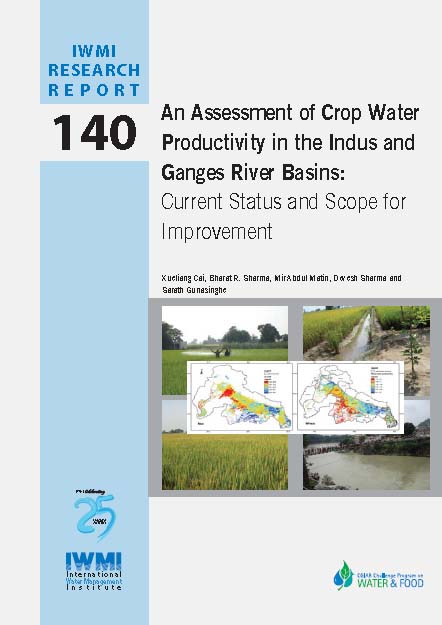/sub-categories/research-papers
Research Papers
Peel potential - Bananas can filter heavy metals from water - Article from Down to Earth
Posted on 25 Apr, 2011 12:26 PMGlobal equatorial sea-surface temperatures over the last 150,000 years: An update from foraminiferal elemental analysis – A paper in Current Science
Posted on 25 Apr, 2011 10:21 AMSolar insolation changes are amongst various factors that affect sea-surface temperature, which in turn modulate global climate. Out of all the oceanic regions, equatorial region receives the maximum solar insolation and thus is the locale for the warmest waters. However, how the equatorial sea-surface temperature affects global climate, is still not clear.
Artificial groundwater recharge and recovery of a highly saline aquifer – A paper in Current Science
Posted on 25 Apr, 2011 07:59 AMA key factor in the long-term viability of aquifer storage and recovery is the extent of mineral interaction between two dissimilar water types, their recoverable fractions and consequent impact on water quality and aquifer stability.
Role of indigenous knowledge system in conservation of forest resources – A case study of the Aka tribes of Arunachal Pradesh – A paper in the Indian Journal of Traditional Knowledge
Posted on 23 Apr, 2011 09:01 PM Indigenous knowledge is the basis for local level decision making in agriculture, healthcare, food preparation, education, natural resource management, and a host of other activities in rural communities.
Indigenous knowledge is the basis for local level decision making in agriculture, healthcare, food preparation, education, natural resource management, and a host of other activities in rural communities.
Traditional knowledge used in paddy cultivation in Raipur district of Chhattisgarh – A paper in the Indian Journal of Traditional Knowledge
Posted on 22 Apr, 2011 07:42 PMRice is the main crop cultivated in the State and several indigenous technologies are being used by farmers for seed germination, preventing the crop from insect/pest attack in the field as well as for storage.
An assessment of crop water productivity in the Indus and Ganges river basins: Current status and scope for improvement – A research report by IWMI
Posted on 20 Apr, 2011 06:43 PM This approach is based on the integration of readily available remote sensing, national crop productivity and land use statistics and weather data.
This approach is based on the integration of readily available remote sensing, national crop productivity and land use statistics and weather data.
Traditional fishing techniques of tribes in Bastar region of Chhattisgarh – A paper in the Indian Journal of Traditional Knowledge
Posted on 20 Apr, 2011 07:52 AMTribal habitat and rich primitive culture covers many traditions and fish is an integral part of the tribal food habit since times immemorial in this region. The life of tribes mainly depends on naturally available foods which can rarely be reaped in other places. The fishing techniques are specialized according to structure, size of stream, season and species of fishes intended to be harvested.
Drinking water quality monitoring and development of surveillance mechanisms - A pilot study done by NEERI in New Delhi
Posted on 20 Apr, 2011 02:30 AMThe WHO guidelines for drinking water quality aim to protect public health and the key way to ensure this is through the adoption of Water Safety Plans (WSP). WSP includes setting of health targets, risk analysis and its assessment to identify priority hazardous scenarios and management of the risk.
Assessing acute Gastroenteritis risks associated with water quality and sanitation in Hyderabad city - A paper by the Institute of Health Systems (IHS)
Posted on 19 Apr, 2011 11:35 PMThe quality of drinking water is a vital element of public health and well-being. The most effective means of consistently ensuring the safety of a drinking-water supply is through the use of a comprehensive risk assessment and risk management approach that encompasses all steps in water supply from catchment to consumer.
WHO guidelines on water quality term these approaches as water safety plans (WSPs), developed to organize, systematize and apply management practices in drinking-water quality.
Interventions that make agriculture sustainably high-yielding, eco-friendly and empower small-holder farmers - A research paper (2009)
Posted on 19 Apr, 2011 04:18 AMStating that modern agriculture increases production cost, the author observes that productivity of the same crop was higher in pre-British times than what it is now with modern agriculture techniques.
As these old agricultural techniques have not been scientifically researched there is a lot of scepticism which also results in them not being promoted. The paper lists out agricultural techniques, which result in sustainable high yields and are accepted by the scientific community.